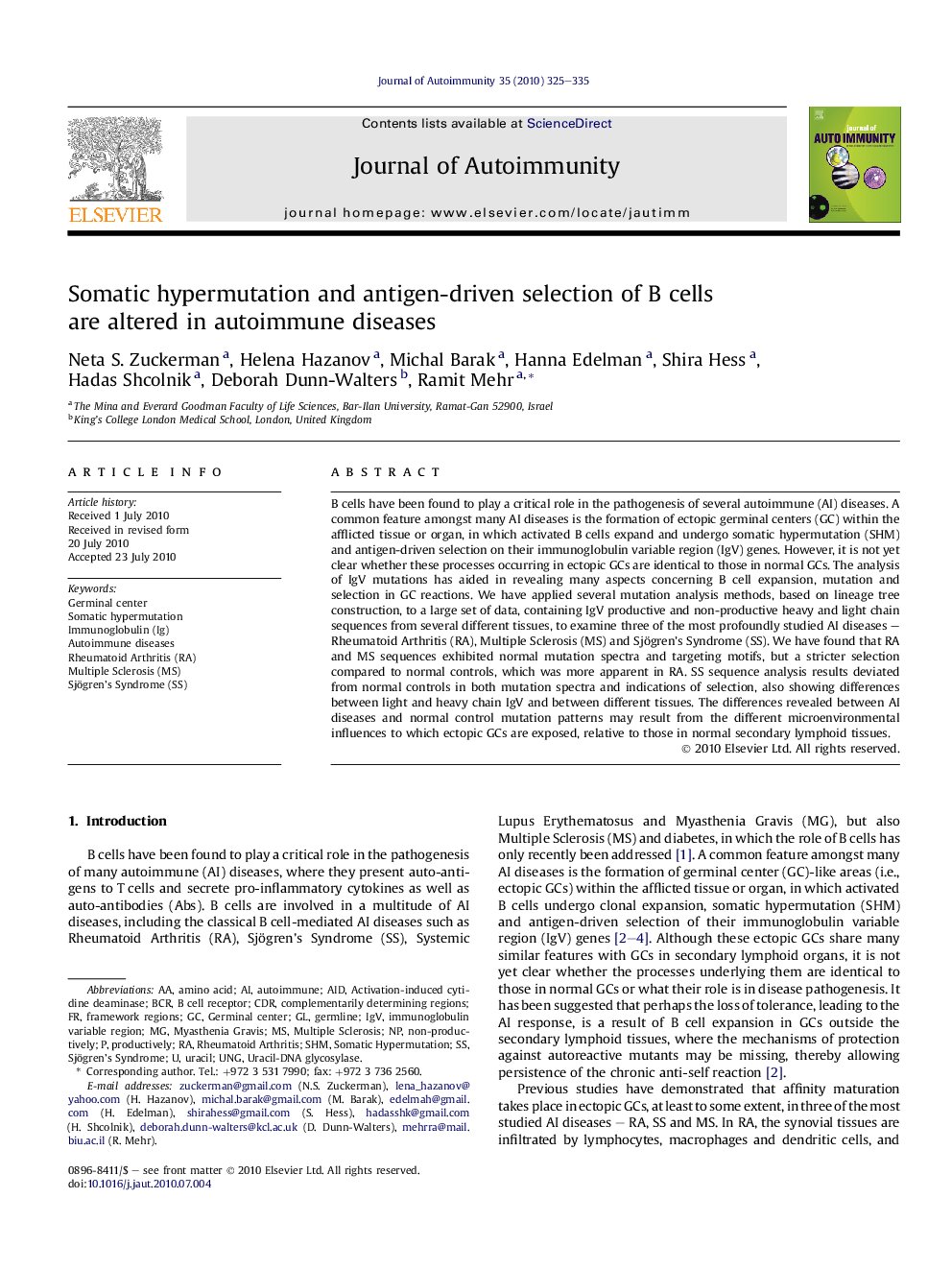| Article ID | Journal | Published Year | Pages | File Type |
|---|---|---|---|---|
| 3368180 | Journal of Autoimmunity | 2010 | 11 Pages |
B cells have been found to play a critical role in the pathogenesis of several autoimmune (AI) diseases. A common feature amongst many AI diseases is the formation of ectopic germinal centers (GC) within the afflicted tissue or organ, in which activated B cells expand and undergo somatic hypermutation (SHM) and antigen-driven selection on their immunoglobulin variable region (IgV) genes. However, it is not yet clear whether these processes occurring in ectopic GCs are identical to those in normal GCs. The analysis of IgV mutations has aided in revealing many aspects concerning B cell expansion, mutation and selection in GC reactions. We have applied several mutation analysis methods, based on lineage tree construction, to a large set of data, containing IgV productive and non-productive heavy and light chain sequences from several different tissues, to examine three of the most profoundly studied AI diseases – Rheumatoid Arthritis (RA), Multiple Sclerosis (MS) and Sjögren’s Syndrome (SS). We have found that RA and MS sequences exhibited normal mutation spectra and targeting motifs, but a stricter selection compared to normal controls, which was more apparent in RA. SS sequence analysis results deviated from normal controls in both mutation spectra and indications of selection, also showing differences between light and heavy chain IgV and between different tissues. The differences revealed between AI diseases and normal control mutation patterns may result from the different microenvironmental influences to which ectopic GCs are exposed, relative to those in normal secondary lymphoid tissues.
